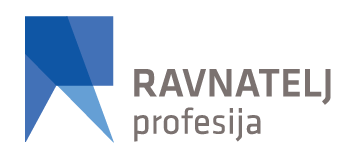During the project and the implementation of the project element 2: Teaching instructors − strengthening the capacity of the study program teachers, the project team members went for a study tour in the UK from 26th June to 2nd July, 2016.
The study tour to educational institutions covering the wider London area directed towards the understanding of the principals’ role in the British educational system, towards challenges they face in their multicultural surrounding, the ways of their professional development and promotion, the support they receive within and outside of the institution they work for etc. Therefore, the project team members interviewed the employees at higher positions in primary and secondary schools they visited (principals, vice-principals, their assistants, conductors of professional areas and educational stages). In addition, they met the inspector of school administration quality (Her Majesty’s Inspector) working for Ofsted (Office for standards in education, Children’s services and skills). They also participated in the conference titled Research and development, which analyzed implementation of management in education based on research results.
During their study tour in London, the project team members visited the following educational institutions:
- Mandeville Primary School,
- University College London,
- The London Centre for Leadership in Learning, Institute of Education,
- Newport Primary School,
- Paul’s Trust School,
- Bethnal Primary School.
During the visit, the team found out that principal’s role is partly determined by her/his school type, while their efficiency is always assessed according to the accomplished educational standards, irrespective of the special features of the educational surrounding. The principal’s mandate is unlimited, and revocations depend on inspector’s decision. The biggest support to the principal is given by teachers, who are organized in teams in charge for certain quality aspect. Principal pays additionally for the services provided by expert associates. The criteria for principal’s appointment depend on the School committee and local government, while professional training is adjusted according to individual principal’s needs. Many principals are trained in the area of methodology of action researches since there is a tendency for evidence-based leading.
In addition, the team analyzed the special features of principal’s work in an extremely hierarchically set educational system with a strict supervision and common changes in educational policy. Educational work of schools is directed towards meeting the prescribed requirements for which the principal is in charge. Yet, certain schools are set apart as being excellent precisely because the principal recognizes the pedagogical value of improving the school quality, of enriching the school curriculum and of a countinuous professional training of all employees. The knowledge obtained during the visit will be taken into account during the creation of the higher education curriculum for education of Croatian principals.
This website is co-financed by the European Union from the European Social Fund
University of Zadar takes all the responsibility for making this website









